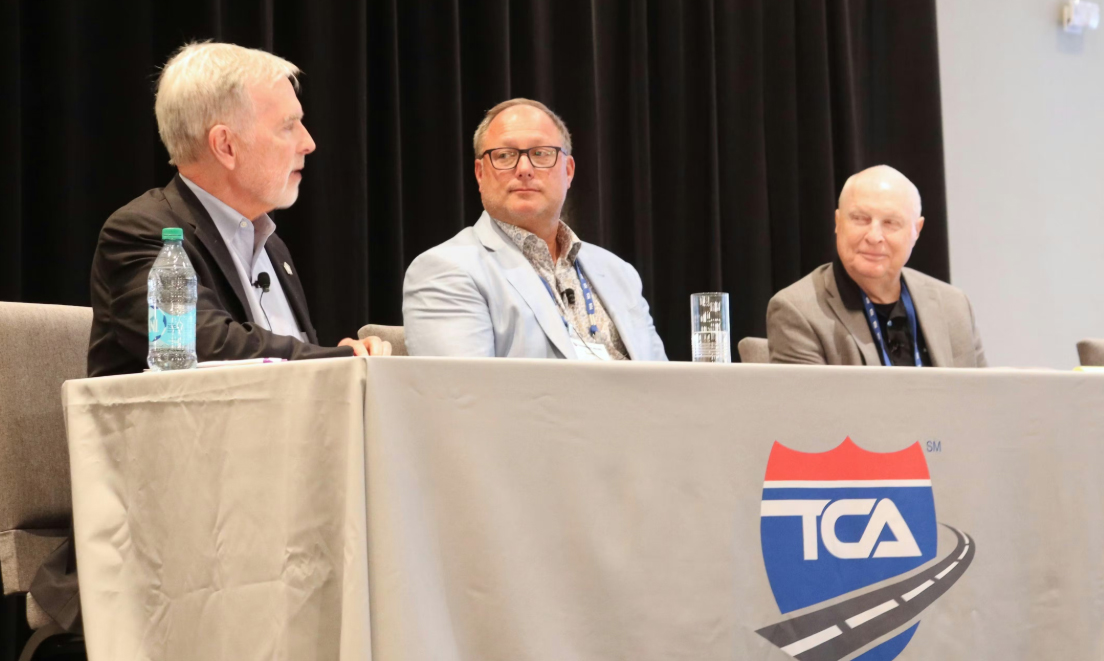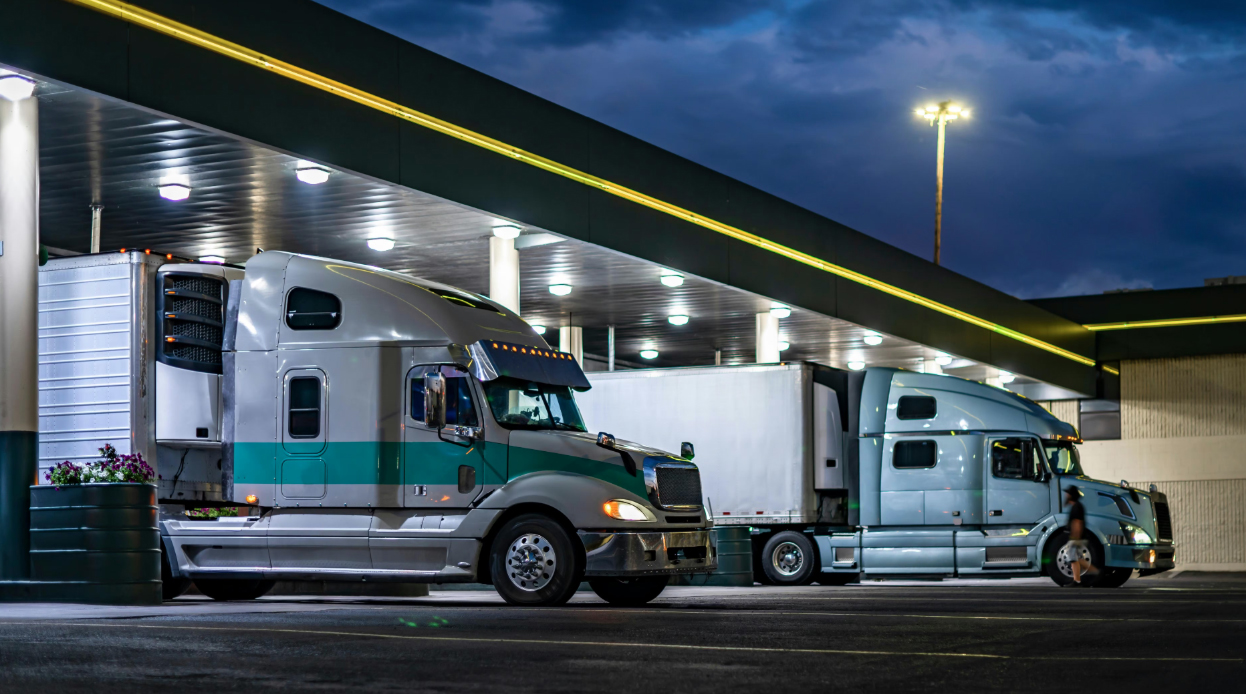Refrigerated trucking companies remain cautious about recovery forecasts as they grapple with excess capacity, escalating equipment costs, and shifting consumer habits. Many executives are asking, "Is this the new normal?" However, new data suggests that "political tailwinds" could help end the prolonged trucking recession.
At the Truckload Carriers Association's annual conference on 16/7 in Colorado Springs, Colorado, John Larkin, a strategic advisor at Clarendon Capital, offered a glimmer of optimism. He highlighted developments in Washington favorable to the trucking industry: deregulation, tax cuts in the "Big Beautiful Bill" package, and incentives to reshore manufacturing through tariff policies. "Over the last 18 months, the political winds have shifted pretty dramatically in a positive direction," Larkin said.
Recent reports support Larkin's optimistic view. Spot market load postings increased 5.9% in the last week of July, and refrigerated spot rates rose 2.1 cents—more than 2% higher than the same period in 2024, according to FTR and Truckstop.com. A Truckstop.com and Bloomberg survey found that 85% of businesses believe freight volumes will either hold steady or increase in the second half of 2025.
Todd Markusic, a manager at Truckstop.com, suggested that despite a weak second quarter and the unpredictable impact of tariffs, many businesses still anticipate a recovery in the next six months.
 |
John Larkin (left), advisor at Clarendon Capital, discusses the outlook for refrigerated carriers with Sam Anderson (center), president and CEO of Bay and Bay Transportation, and Marten Transport CEO Tim Kohl. *Photo: Fleet Owner* |
However, executives from three leading refrigerated trucking companies (Bay and Bay Transportation, Marten Transport, and Erb Transport) remain skeptical. They believe the industry is mired in a prolonged recession, with excess capacity continuing to weigh on rates, while rising operating costs and changing consumer trends are distorting the long-haul trucking market. Trends like "farm-to-table," working from home, and shifts in agricultural sourcing are shaking the foundations of traditional refrigerated transport.
"No one thing is causing the downturn by itself, but all of it together is making everybody scratch their head and say, 'Is this the new normal?'", said Sam Anderson, president and CEO of Bay and Bay Transportation.
According to Larkin, tax cuts and incentives for domestic manufacturing will greatly benefit the trucking industry. "Industrial production is the variable most closely correlated to truckload volumes," he stated, suggesting that industrial growth will drive trucking demand.
However, Marten Transport CEO Tim Kohl countered, "Consumers are going to pay the price. The tariff levels that are in place right now are ridiculous; our industry can no longer afford new tractors".
High interest rates are also dampening investment, directly impacting freight volumes. Larkin emphasized, "Interest rates are too high, and it’s choking off investments, and it’s reducing freight volumes".
 |
Executives from three leading refrigerated trucking companies, Bay and Bay Transportation, Marten Transport and Erb Transport remain skeptical about the outlook for the trucking market. *Photo: Fleet Owner* |
While demand for refrigerated trucking remains more robust than for dry freight, refrigerated carriers face unique challenges. One emerging phenomenon is the popularity of GLP-1 weight-loss drugs like Ozempic, which are altering eating habits and reducing the demand for transporting frozen foods.
Simultaneously, the "farm-to-table" trend has led many restaurants to increase their local sourcing from 12% (2020) to 35% (2024), reducing the need for long-haul transportation. Additionally, much of US produce is now being grown in Mexico and Texas, instead of California, which was once the central source.
Working from home has also decreased demand for dining out, especially in major cities. "People have to tighten their belts, and eating out is an easy place to cut back," Kohl noted.
Refrigerated trucking companies are striving to optimize operations but cannot cut costs indefinitely. "At some point you have to tell customers, 'This is the minimum we need to operate, and we can’t pay drivers any less than this'," Anderson explained.
Marten Transport's Q2 report revealed a 17% increase in tractor costs compared to 2021, a 30% rise in refrigerated trailer costs, and escalating maintenance expenses, consuming 7% of revenue.
"I don’t know if this is the new normal, but if you don’t treat it like it is, you’re not going to make any money," said Marten Transport CEO Tim Kohl. He expressed caution about Q4, despite emerging signs of recovery.
John Larkin, strategic advisor at Clarendon Capital, concluded, "Most trucking recessions last 14 months. This one has gone on for more than 36 months, almost three times as long. If the tariffs get resolved, interest rates come down, and the excess capacity comes out of the market, I think next year looks a whole lot brighter".
Nhu Y (*From Fleet Owner*)












